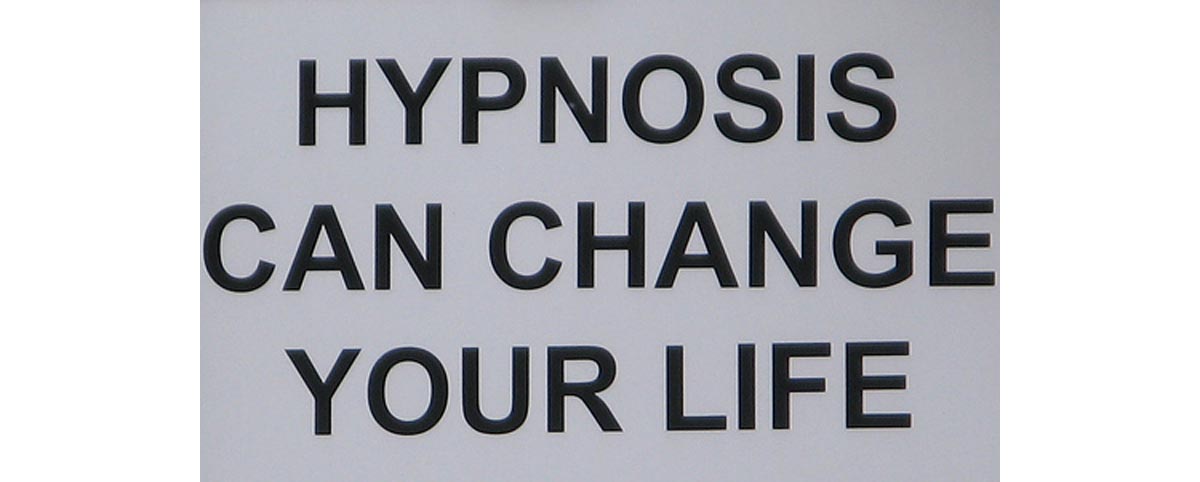Using the Power of the Mind to Repair the Body
Advocates of holistic hypnotherapy have long contended that the power of the imagination is greater than the power of pharmaceuticals in speeding healing of hundreds of different kinds of ailments, including allergies, impotence, depression, arthritis, and asthma. For two generations, hypnotherapists have organized seminars for mass hypnosis to help people lose weight and stop smoking.Does holistic hypnotherapy really work?

-
Authors publishing their findings in the journal Obesity reported that very low-calorie diets result in fast weight loss and fast weight regain, but people who used self-hypnosis in combination with diets of their own design were more likely to keep weight off once they lost it.
-
Dr. Tom Kraft, writing a letter to the Journal of the Royal Society for Medicine, reported that 10 hypnotherapy sessions helped a patient to stop snoring. He also was able to reduce his alcohol consumption and lose 8 kg (17 pounds).
-
The Alternative Medicine Review reported three studies that found that hypnosis resulted in average weight loss of 3 kg (7 pounds), and that weight loss continued at a slower rate over time. Most diets result in short-term weight loss that is followed by the weight being gained back.
-
The journal BMC Pediatrics reports that a patient taught hypnosis by her pulmonologist for controlling anxiety about asthma was eventually able to control her asthma without using an inhaler.
- A study published in the British Medical Journal found that treating allergy patients with hypnosis changed their blood work. After hypnosis, the allergy patients' blood samples showed more suppressor T-cells, which stop allergic reactions, than helper T-cells, which start them.
-
Many clinical trials have evaluated hypnosis as a tool for treating pain caused by severe burns. They tend to find that there are greater results for severe pain than for mild pain, and greater results for children than for results.
- An oral surgeon who used hypnotherapy in his dental practice had his gallbladder removed without anesthesia, using hypnosis alone. He was able to walk to his room after surgery and returned to work 10 days after the operation.
-
Three studies have evaluated hypnosis as a treatment for irritable bowel syndrome, also known as IBS. Patients who received hypnosis reported significantly greater quality of life and fewer days missed from work.
- Hypnosis has been used with colonoscopy exams. Half of colonoscopy patients were able to enter a deep trance before the procedure, and 80 per cent of these experienced no pain or only minor discomfort during the procedure.
-
The Journal of Behavioral Medicine reports a study of a combination of hypnotherapy and aversion techniques for smoking cessation (such as a mild electrical shock when picking up a cigarette) results in an 86 per cent quit rate for men and and 87 per cent quit rate for women.
The Remarkable Curative Power of the Mind
No study has ever found that hypnosis cures any condition 100% of the time. Neither do studies find that medications or other medical procedures cure conditions 100% of the time. Holistic hypnotherapy is not a sure-fire cure. Nothing is. But holistic hypnotherapy can help a very large percentage of the problems people bring to physicians.
Very commonly this is smell. Chemotherapy patients often hypnotize themselves—and not in a good way—when they try to eat a favorite food when they are nauseous because of cancer treatment. The brain associates the undesirable side effect of chemotherapy with the formerly pleasant aroma of the food, and a once highly desirable food becomes a trigger for nausea, even when chemotherapy is complete.
Restaurants and food manufacturers also know the role of sight, sound, and smell in hypnotizing the brain. Hundreds of millions of Americans remember happy times from childhood whenever they see the golden arches of McDonald's. Just to see the "big M" or the familiar brick building is enough to trigger salivation.
Holistic hypnotherapy does, and sometimes undoes, what advertising does to all the time, only the objectives of holistic hypnotherapy are chosen by the patient. Negative thoughts are replaced by positive thoughts. Negative associations are replaced by positive associations—except when aversion is the goal, such as is the case with aversion therapy for smoking cessation.
The professional hypnotherapy helps the patient harness the sights, sounds, tastes, smells, and touch that have entered the mind in ways that give control over breathing, appetite, addiction, pain, and even bleeding, flatulence, muscle tremors, skin blemishes, and warts.
So how can you avail yourself of the potential of holistic hypnotherapy? Here are some important suggestions:
- Whenever possible, seek individual hypnotherapy sessions rather than group hypnotherapy sessions. Individual sessions bring quicker, faster, and longer-lasting changes in behavior.
- Ask to see a disclosure statement. In most of the United States and Canada, hypnotherapists are required to show you a statement of their qualifications, theory, and ethical code before they begin treating you, and you are required to sign it. If your would-be hypnotherapist does not offer a disclosure statement, leave.
- Ask your hypnotherapist how he or she mastered her profession. Mastering hypnotherapy takes hundreds of hours of classroom work and a supervised internship, or advanced training in a related field, such as nursing, psychology, or medicine. If your therapist cannot document his or her professional training, leave.
- Ask how long treating (fill in the blank) will take. It is a reasonable request of your hypnotherapist to estimate the number of sessions required for results.
- Don't be afraid to ask which kinds of diseases hypnotherapy cures.
- Stewart JH. Hypnosis in Contemporary Medicine. Mayo Clin Proc. 2005 Apr, 80(4):511-24. Review
- Photo courtesy of Eltman on Flickr: www.flickr.com/photos/eltman/468987734/

